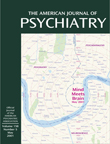Quetiapine and Leukopenia
Ms. A was a 23-year-old Caucasian woman who had been diagnosed with schizoaffective disorder, bipolar type, without prior medical conditions, who had been residing on an inpatient psychiatric ward for about 3 months. She exhibited auditory hallucinations and bizarre somatic delusions. During prior admissions, she had received the following psychotropic drugs: diphenhydramine, trazodone, perphenazine, risperidone, olanzapine, lithium, bupropion, fluoxetine, and droperidol. Risperidone therapy, 1 mg b.i.d., was initially started, but after 5 days of therapy, Ms. A claimed that it made her “hyper and sedated.” Quetiapine treatment was instituted and slowly titrated, beginning with 50 mg/day. Her highest dose was 600 mg/day at the end of 3 months. During this hospital stay, Ms. A had refused all laboratory tests on the basis of her bizarre somatic delusions. She was prescribed valproic acid, 1000 mg/day, which she had received for years; her concurrent CBC results then fell within normal limits.As Ms. A’s psychosis cleared, after she had reached a dose of 600 mg/day of quetiapine, she agreed to have blood tests performed. All laboratory results were normal except the CBC. Her WBC count was 2800 cells/mm3, her absolute neutrophil count was 900 cells/mm3, and her other cell counts were within normal ranges. An HIV test produced negative results. Her valproic acid level was 86 mg/liter. Quetiapine was discontinued, and 12 days later, Ms. A’s WBC count was 2800 cells/mm3, and her absolute neutrophil count was 1000 cells/mm3. Three days later, her WBC count was 2900 cells/mm3, and her absolute neutrophil count was 1000 cells/mm3. These values slowly rose to normal ranges over the next 3 months. Olanzapine therapy was begun 9 days after quetiapine therapy was discontinued.Twenty-two days after she discontinued quetiapine, Ms. A’s WBC count was 4000 cells/mm3, and her absolute neutrophil count was 1700 cells/mm3. Over the next 15 weeks, three CBCs revealed WBC counts ranging from 4000 to 4700 cells/mm3; her absolute neutrophil count was 1600–2200 cells/mm3. A WBC count of 3300 cells/mm3 with an absolute neutrophil count of 1200 cells/mm3 30 days after quetiapine therapy was discontinued was the only exception. Three months before this admission, Ms. A’s baseline WBC count had been 5800 cells/mm3. One day before admission, her WBC count was 5600 cells/mm3.
Reference
Information & Authors
Information
Published In
History
Authors
Metrics & Citations
Metrics
Citations
Export Citations
If you have the appropriate software installed, you can download article citation data to the citation manager of your choice. Simply select your manager software from the list below and click Download.
For more information or tips please see 'Downloading to a citation manager' in the Help menu.
There are no citations for this item
View Options
View options
PDF/ePub
View PDF/ePubGet Access
Login options
Already a subscriber? Access your subscription through your login credentials or your institution for full access to this article.
Personal login Institutional Login Open Athens loginNot a subscriber?
PsychiatryOnline subscription options offer access to the DSM-5-TR® library, books, journals, CME, and patient resources. This all-in-one virtual library provides psychiatrists and mental health professionals with key resources for diagnosis, treatment, research, and professional development.
Need more help? PsychiatryOnline Customer Service may be reached by emailing [email protected] or by calling 800-368-5777 (in the U.S.) or 703-907-7322 (outside the U.S.).

